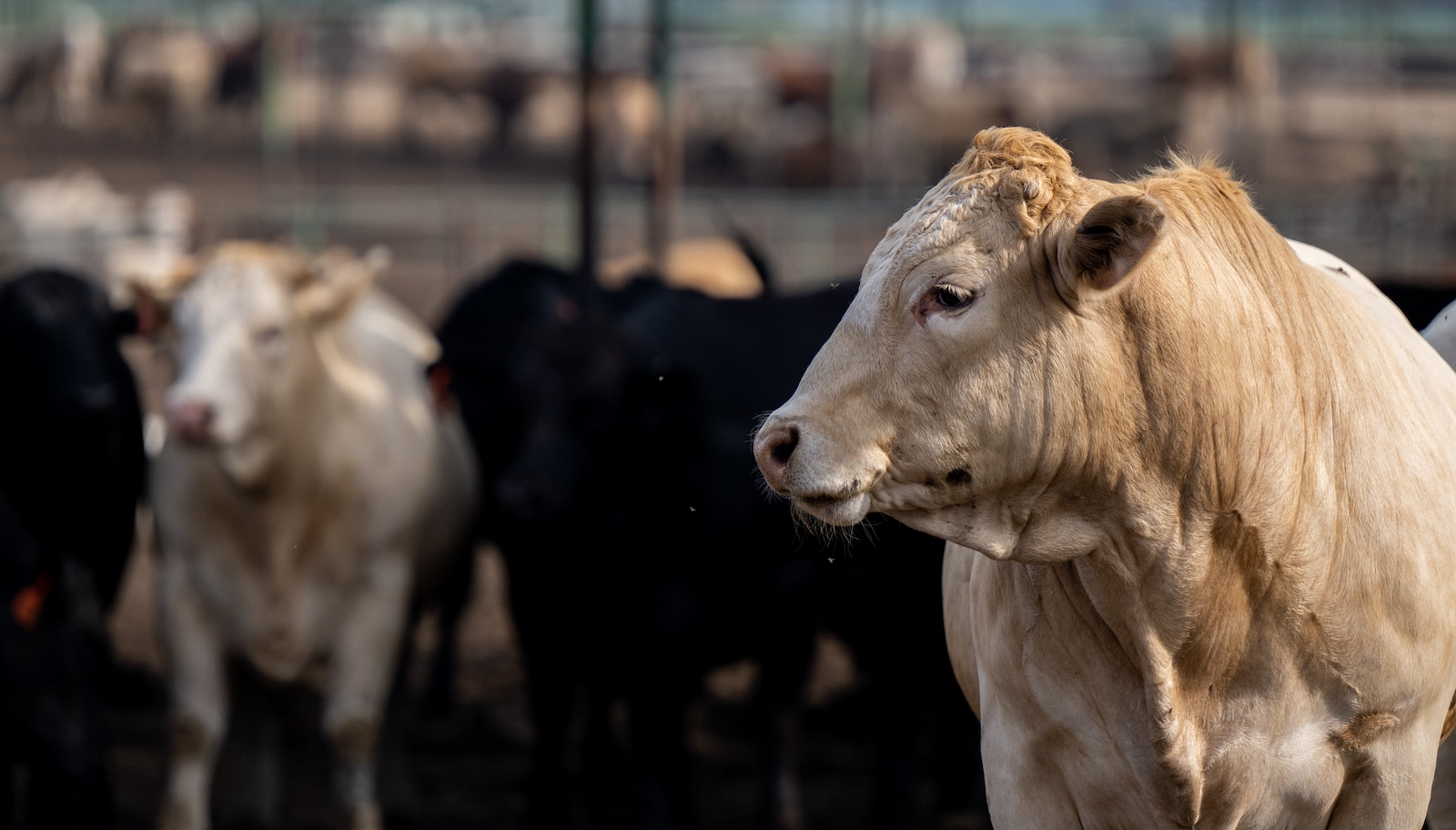Shoppers have long sought ways to make more sustainable choices at the supermarket and for good reason: Our food system is responsible for a third of global greenhouse gas emissions. The vast majority of emissions from agriculture come from raising cows on industrial farms in order to sell burgers, steak, and other beef products. Beef production results in two and a half times as many greenhouse gases as lamb, and almost nine times as many as chicken or fish; its carbon footprint relative to other sources of protein, like cheese, eggs, and tofu, is even higher. If you want to have a lighter impact on the planet, you could try eating less beef. (Just try it!) Otherwise, a series of recent lawsuits intends make it easier for consumers to discern what’s sustainable and what’s greenwashing by challenging the world’s largest meat processors on their climate messaging. Tyson, which produces 20 percent of beef, chicken, and pork in the United States, has agreed to drop claims that the company has a plan to achieve “net zero” emissions by 2050 and to stop referring to beef products as “climate smart” unless verified by an independent expert. Tyson was sued in 2024 by the Environmental Working Group, or EWG, a nonprofit dedicated to public health and environmental issues. The group alleged that Tyson’s claims were false and misleading to consumers. (Nonprofit environmental law firm Earthjustice represented EWG in the case.) Tyson denied the allegations and agreed to settle the suit. “We landed in a place that feels satisfying in terms of what we were able to get from the settlement,” said Carrie Apfel, deputy managing attorney of Earthjustice’s Sustainable Food and Farming program. Apfel was the lead attorney on the case. According to the settlement provided by Earthjustice, over the next five years, Tyson cannot repeat previous claims that the company has a plan to achieve net zero emissions by 2050 or make new ones unless they are verified by a third-party source. Similarly, Tyson also cannot market or sell any beef products labeled as “climate smart” or “climate friendly” in the United States. “We think that this provides the consumer protections we were seeking from the lawsuit,” said Apfel. The settlement is “a critical win for the fight against climate greenwashing by industrial agriculture,” according to Leila Yow, climate program associate at the Institute for Agricultural and Trade Policy, a nonprofit research group focused on sustainable food systems. In the original complaint, filed in D. C. Superior Court, EWG alleged that Tyson had never even defined “climate smart beef,” despite using the term in various marketing materials. Now Tyson and EWG must meet to agree on a third-party expert that would independently verify any of the meat processor’s future “net zero” or “climate smart” claims. Following the settlement, Apfel went a step further in a conversation with Grist, arguing that the term “climate smart” has no business describing beef that comes from an industrial food system. “In the context of industrial beef production, it’s an oxymoron,” said the attorney. “You just can’t have climate-smart beef. Beef is the highest-emitting major food type that there is. Even if you were to reduce its emissions by 10 percent or even 30 percent, it’s still not gonna be a climate-smart choice.” A Tyson spokesperson said the company “has a long-held core value to serve as stewards of the land, animals and resources entrusted to our care” and identifies “opportunities to reduce greenhouse gas emissions across the supply chain.” The spokesperson added: “The decision to settle was made solely to avoid the expense and distraction of ongoing litigation and does not represent any admission of wrongdoing by Tyson Foods.” The Tyson settlement follows another recent greenwashing complaint this one against JBS Foods, the world’s largest meat processor. In 2024, New York Attorney General Letitia James sued JBS, alleging the company was misleading consumers with claims it would achieve net zero emissions by 2040. James reached a $1. 1 million settlement with the beef behemoth earlier this month. As a result of the settlement, JBS is required to update its messaging to describe reaching net zero emissions by 2040 as more of an idea or a goal than a concrete plan or commitment from the company. The two settlements underscore just how difficult it is to hold meat and dairy companies accountable for their climate and environmental impacts. “Historically, meat and dairy companies have largely been able to fly under the radar of reporting requirements of any kind,” said Yow, of the Institute for Agriculture and Trade Policy. When these agrifood companies do share their emissions, these disclosures are often voluntary and the processes for measuring and reporting impact are not standardized. That leads to emissions data that is often “incomplete or incorrect,” said Yow. She recently authored a report ranking 14 of the world’s largest meat and dairy companies in terms of their sustainability commitments including efforts to report methane and other greenhouse gas emissions. Tyson and JBS tied for the lowest score out of all 14 companies. Industrial animal agriculture “has built its business model on secrecy,” said Valerie Baron, a national policy director and senior attorney at the Natural Resources Defense Council, in response to the Tyson settlement. Baron emphasized that increased transparency from meat and dairy companies is a critical first step to holding them accountable. Yow agreed. She argued upcoming climate disclosure rules in California and the European Union have the potential to lead the way on policy efforts to measure and rein in emissions in the food system. More and better data can lead to “better collective decision making with policymakers,” she said. But, she added: “We need to actually know what we’re talking about before we can tackle some of those things.” Editor’s note: Earthjustice and the Natural Resources Defense Council are advertisers with Grist. Advertisers have no role in Grist’s editorial decisions.
https://grist.org/food-and-agriculture/climate-smart-beef-after-a-lawsuit-tyson-agrees-to-drop-the-label/
